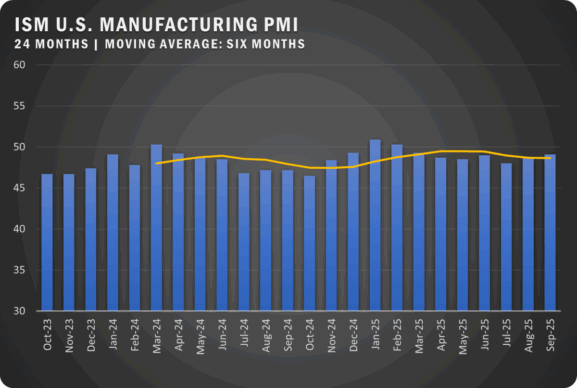Summary of the EU-UK Brexit Agreement
The European Commission reached an agreement on December 24, 2020, with the United Kingdom on the terms of its future cooperation with the European Union.
President of the European Commission, Ursula von der Leyen says, “It was worth fighting for this deal because we now have a fair and balanced agreement with the UK, which will protect our European interests, ensure fair competition, and provide much-needed predictability for our fishing communities. Finally, we can leave Brexit behind us and look to the future. Europe is now moving on.”
The European Commission’s Chief Negotiator, Michel Barnier, says, “We have now come to the end of a very intensive four-year period, particularly over the past nine months, during which we negotiated the UK’s orderly withdrawal from the EU and a brand new partnership, which we have finally agreed today. The protection of our interests has been front and center throughout these negotiations and I am pleased that we have managed to do so. It is now for the European Parliament and the Council to have their say on this agreement.”
The draft Trade and Cooperation Agreement was based on three main pillars:
A Free Trade Agreement: a new economic and social partnership with the United Kingdom
- The agreement covers not just trade in goods and services, but also a broad range of other areas in the EU’s interest, such as investment, competition, state aid, tax transparency, air and road transport, energy and sustainability, fisheries, data protection, and social security coordination.
- It provides for zero tariffs and zero quotas on all goods that comply with the appropriate rules of origin.
- Both parties have committed to ensuring a robust level playing field by maintaining high levels of protection in areas such as environmental protection, the fight against climate change and carbon pricing, social and labor rights, tax transparency and state aid, with effective, domestic enforcement, a binding dispute settlement mechanism and the possibility for both parties to take remedial measures.
- The EU and the UK agreed on a new framework for the joint management of fish stocks in EU and UK waters. The UK will be able to further develop British fishing activities, while the activities and livelihoods of European fishing communities will be safeguarded, and natural resources preserved.
- On transport, the agreement provides for continued and sustainable air, road, rail and maritime connectivity, though market access falls below what the Single Market offers. It includes provisions to ensure that competition between EU and UK operators takes place on a level playing field, so that passenger rights, workers’ rights and transport safety are not undermined.
- On energy, the agreement provides a new model for trading and interconnectivity, with guarantees for open and fair competition, including on safety standards for offshore, and production of renewable energy.
- On social security coordination, the agreement aims at ensuring a number of rights of EU citizens and UK nationals. This concerns EU citizens working in, traveling or moving to the UK and to UK nationals working in, traveling or moving to the EU after January 1, 2021.
- Finally, the agreement enables the UK’s continued participation in a number of flagship EU programs for the period 2021-2027 (subject to a financial contribution by the UK to the EU budget), such as Horizon Europe.
A new partnership for our citizens’ security
- The Trade and Cooperation Agreement establishes a new framework for law enforcement and judicial cooperation in criminal and civil law matters. It recognizes the need for strong cooperation between national police and judicial authorities, in particular for fighting and prosecuting cross-border crime and terrorism. It builds new operational capabilities, taking account of the fact that the UK, as a non-EU member outside of the Schengen area, will not have the same facilities as before. The security cooperation can be suspended in case of violations by the UK of its commitment for continued adherence to the European Convention of Human Rights and its domestic enforcement.
A horizontal agreement on Governance: A framework that stands the test of time
- To give maximum legal certainty to businesses, consumers and citizens, a dedicated chapter on governance provides clarity on how the agreement will be operated and controlled. It also establishes a Joint Partnership Council, who will make sure the Agreement is properly applied and interpreted, and in which all arising issues will be discussed.
- Binding enforcement and dispute settlement mechanisms will ensure that the rights of businesses, consumers and individuals are respected. This means that businesses in the EU and the UK compete on a level playing field and will avoid either party using its regulatory autonomy to grant unfair subsidies or distort competition.
- Both parties can engage in cross-sector retaliation in case of violations of the agreement. This cross-sector retaliation applies to all areas of the economic partnership.
Foreign policy, external security and defense cooperation is not covered by the Agreement as the UK did not want to negotiate this matter. As of 1 January 2021, there will therefore be no framework in place between the UK and the EU to develop and coordinate joint responses to foreign policy challenges, for instance, the imposition of sanctions on third-country nationals or economies.
The Trade and Cooperation Agreement covers a number of areas that are in the EU’s interest. It goes well beyond traditional free trade agreements and provides a solid basis for preserving our longstanding friendship and cooperation. It safeguards the integrity of the Single Market and the indivisibility of the Four Freedoms (people, goods, services and capital). It reflects the fact that the UK is leaving the EU’s ecosystem of common rules, supervision and enforcement mechanisms, and can therefore no longer enjoy the benefits of EU membership or the Single Market. Nevertheless, the Agreement will by no means match the significant advantages that the UK enjoyed as a Member State of the EU.
Big Changes: Effective January 1, 2021
Even with the new EU-UK Trade and Cooperation Agreement in place, big changes were set to take effect on January 1, 2021.
On that date, the UK left the EU Single Market and Customs Union, as well as all EU policies and international agreements. The free movement of persons, goods, services and capital between the UK and the EU ended.
The EU and the UK formed two separate markets; two distinct regulatory and legal spaces. This will create barriers to trade in goods and services and to cross-border mobility and exchanges in both directions.


